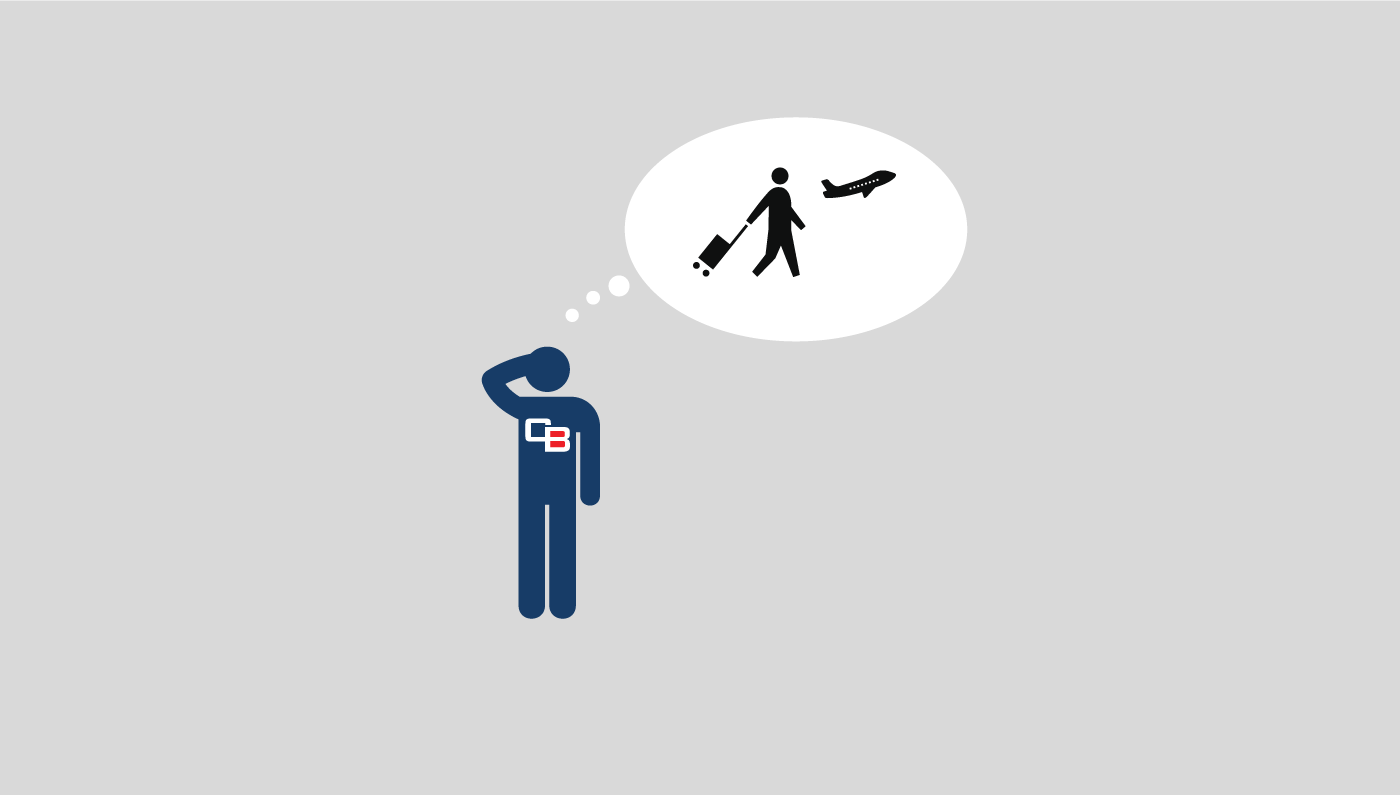Work from anywhere in the world with unconstrained freedom” sounds like a dream come true as an employee, but is absolutely terrifying as that employee’s manager. I know firsthand– as my intern Andrew Santis boarded his flight, setting out to work remotely in Europe for the summer as a cultural experiment, the hair stood up on the back of my neck.
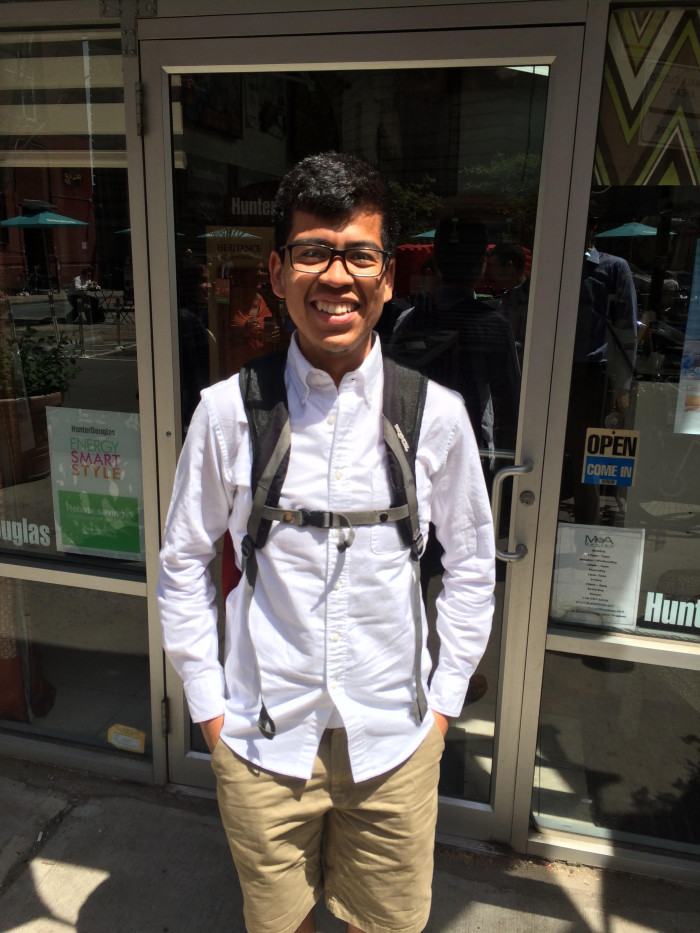 Andrew’s last picture in Brooklyn as he heads off to the airport.
Andrew’s last picture in Brooklyn as he heads off to the airport.It was my idea, so I had no one to blame, but the reality of it didn’t start to hit me until I shook his hand after a farewell lunch and he set off for the airport. You fear the obvious things: is he about to have an all-expenses-paid summer-long party in Europe? Is he going to get lonely by himself? Is he going to be safe?
I never voiced any of these thoughts to Andrew until we were having lunch in the park when he returned. He said that I sounded like his parents, and in a way he was right; I undoubtedly spent more time communicating with him than any of his friends of family while he was thousands of miles away, giving me the best sense of the situation. In turn I felt a strong sense of responsibility.
Throughout the trip things popped up. 12 hours after I bid Andrew farewell, I got an email that the airline lost his luggage and that he was pick-pocketed within 10 minutes of setting foot in Paris. Are you kidding me? An awful start, it was luckily the only incident of the trip. He got his luggage back and things picked up from there.
But it jolted me into realizing that we had to have an extraordinary amount of discipline throughout this process, and I had to lead the charge. I consciously focused on 5 specific areas:
Mentoring
Andrew is a phenomenal intern and at the top of his class at Fordham. But it was important to remember that at 20 years old he hasn’t had much work experience outside of his 10 months at Cardwell Beach, during which he worked 1-2 days a week at most. This posed the challenge of how I was going help him make the transition to a 40 hour work week, working on a real project with real deadlines.
Mentoring is difficult enough when someone is sitting right next to you. With a 6-hour time difference, it really helped that Andrew made the decision to build his work schedule on New York time. He did sightseeing activities during the day, and worked collaboratively with us into his evening.
Back in Brooklyn, I helped Andrew work through new concepts on the whiteboard. Here, I would have to do it via Sykpe, commenting on his work in shared documents and giving him 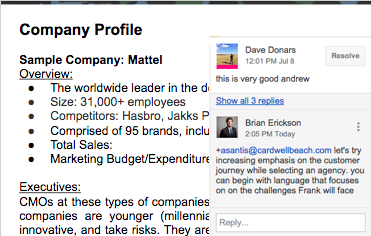 videos to watch and articles to read. This was not as big an issue as I had anticipated. It simply required diligence around comprehension and making sure the feedback loop was as short as possible. We couldn’t let Andrew get too far down a path without gauging progress via small incremental tasks. The shared documents and commenting functionality we used were key in this regard.
videos to watch and articles to read. This was not as big an issue as I had anticipated. It simply required diligence around comprehension and making sure the feedback loop was as short as possible. We couldn’t let Andrew get too far down a path without gauging progress via small incremental tasks. The shared documents and commenting functionality we used were key in this regard.
It’s been funny to observe after Andrew returned to Brooklyn, we continue to work this way even while we’re sitting directly next to each other. We’ll both be looking at our respective computer screens and editing/commenting directly into the same document at the same time, so I guess the system worked.
Emotional Support
CB INTERNational is a really, really intense program. Don’t get me wrong– it’s a ton of fun and completely transformative, but it’s intense.
Picture this: it’s your last summer as a college student and senior year is rapidly approaching. You’ve left all your friends and family behind to go it alone on an adventure throughout 4 countries and 10 cities in Europe where you don’t speak the language. You’re taking on a key high-visibility project in a rapidly growing agency, working directly with the executive team. So it was very obvious that even the strongest 20-year-old is going to need a lot of emotional support to get through this transformation.
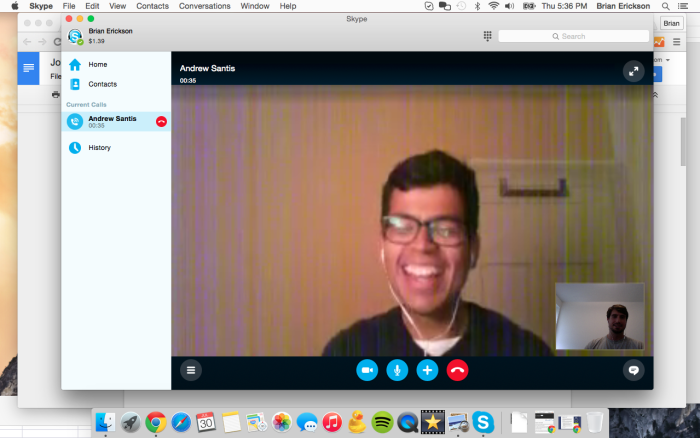
In this vein, one of Andrew’s requests before he left was that we do our status calls on video, so I obliged. I’ve never really been a video chat person, but when done on a regular basis, it’s much, much more humanizing than just using the phone. We combined video communication with constantly being on Google chat to make sure someone was always there to talk to.
A lot of the time Andrew and I spent talking was just about the amazing things he was doing on his trip. We also asked him to blog and video blog in a completely uncensored manner so that we could keep tabs on how he was feeling each day. Our whole team read his blog daily, and the support he got when he ran into adversity was incredible.
This support from the team was a key aspect of making the trip a success. Sometimes you just need to laugh together.
Technology
We’re accustomed to working remotely so we have addressed most common technology challenges, but issues did arise occasionally. The main challenges came from unpredictable WiFi. A great aspect of remote work is that you can camp out wherever you’re feeling inspired, so 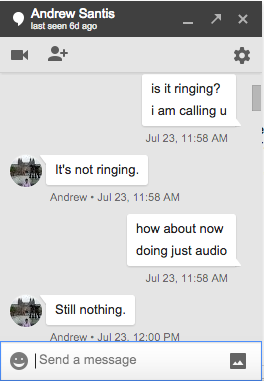 Andrew would often be out in a botanical garden or a city square when we’d have our status. Sometimes the connection was great, other times we had to reschedule our call. There were times where I couldn’t get a hold of him or he couldn’t get a hold of me, but this improved throughout the trip as we built a rapport.
Andrew would often be out in a botanical garden or a city square when we’d have our status. Sometimes the connection was great, other times we had to reschedule our call. There were times where I couldn’t get a hold of him or he couldn’t get a hold of me, but this improved throughout the trip as we built a rapport.
We were already set up on Google Apps, and all of Andrew’s work was done completely in the cloud. We set up shared documents for each of his projects before he left, and relied heavily on the commenting features to provide feedback and collaborate. The shared calendar was a huge component of staying organized and on the same page. Both of us knew when we could reach the other at all times because even personal time was blocked.
We also used screen sharing for him to present his work to the rest of the team weekly, and recorded it for members that weren’t able to attend.
Skype was obviously a cornerstone of our communications, as were email and instant messaging services.
Work-life balance
It’s tough to balance an international vacation with a mission-critical project. I made it clear to Andrew from the beginning that it was very important for him to have fun, but that we expected him to work with us, too. He’s one of those kids that probably work a bit too hard, so I leaned into the having fun part more than I would have with someone else.
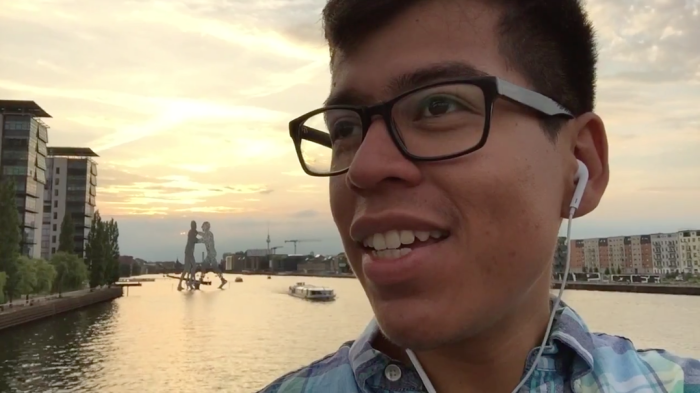 Andrew enjoying a Berlin sunset
Andrew enjoying a Berlin sunsetAs you can see very clearly by the length and content of each post, Andrew LOVED Berlin, and wasn’t crazy about Frankfurt. While he was in Berlin, his calendar magically didn’t have anything in it, he missed our status call, was hardly on chat anymore and all of a sudden took 6-8 hours to answer any emails. At the same time, his Instagram postings quadrupled.
It was entirely obvious to me that he was not working, but it took until Wednesday for us to get on a call. I told him that I wasn’t happy with him– not because he was skipping out on work to have fun, but rather that he didn’t tell me he was skipping out on work to have fun.
The important lesson I wanted to teach here is this: not all time is equally valuable. The greatest moments in life aren’t accessible on-demand, so it’s important to capitalize on them when they are, working backwards from here to create your work schedule. One extra hour of free time in Berlin was worth a week back in Brooklyn, and should be treated and respected as such. I told Andrew to take the rest of the week off and enjoy what ultimately became his favorite city in the world.
He could make the work up later.
This is one of the most difficult things for people to learn when they join our team, and it was fun to watch Andrew adapt to this, and begin to thrive in it.
Deliverables & Planning for Success
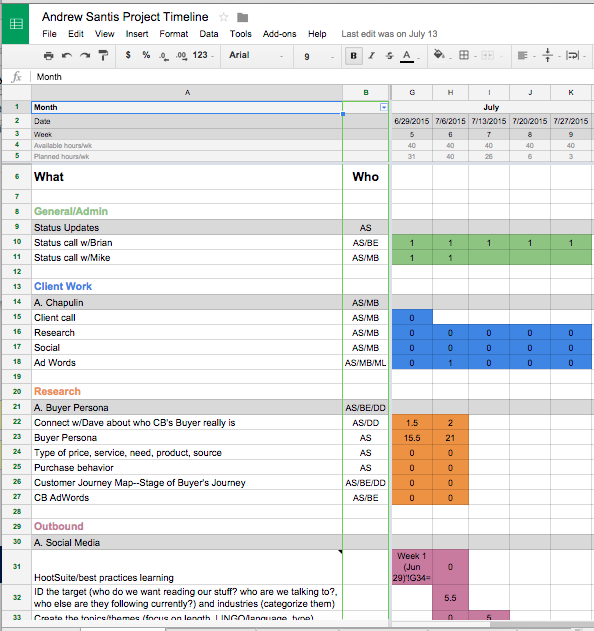 Working remotely is impossible without clearly aligned expectations. Before leaving, Andrew and I sat down to create a plan. We started with a high-level goal to create a buyer persona for Cardwell Beach’s ideal customer, and broke that down accordingly. We also factored in the number of hours each week that would be dedicated to blogging, taking video of his trip and budgeted some time for random tasks that would surely come up. All of this was documented in a spreadsheet including estimates of hours and the person who would lead each deliverable.
Working remotely is impossible without clearly aligned expectations. Before leaving, Andrew and I sat down to create a plan. We started with a high-level goal to create a buyer persona for Cardwell Beach’s ideal customer, and broke that down accordingly. We also factored in the number of hours each week that would be dedicated to blogging, taking video of his trip and budgeted some time for random tasks that would surely come up. All of this was documented in a spreadsheet including estimates of hours and the person who would lead each deliverable.
It was a new experience for Andrew to work backwards from a plan. He didn’t want to bother members of the team who might be busy, and therefore missed some of his first goals. This was a great lesson in being proactive, and learning to fight for the time he needed to get his tasks done on time.
Once we had each week’s plan, we broke tasks down into even smaller increments by moving 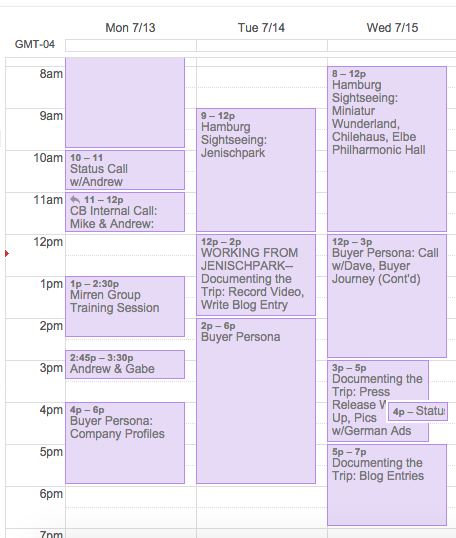 them into the calendar. Nothing was to be larger than a half-day, and ideally should be in 1-hour blocks. These two items were essential for us tracking our progress and making sure we hit our goals, but the real driver of success was discipline on both sides. If we agreed on something being done by a certain date, it would be done, or we would have advance notice that priorities had changed.
them into the calendar. Nothing was to be larger than a half-day, and ideally should be in 1-hour blocks. These two items were essential for us tracking our progress and making sure we hit our goals, but the real driver of success was discipline on both sides. If we agreed on something being done by a certain date, it would be done, or we would have advance notice that priorities had changed.
All in all, this was an amazing experience on both ends. Andrew not only participated in a life-changing experience, but also created some phenomenal work. And I learned the critical nuances that can make a true 100% remote relationship work anywhere in the world, even with an intern.
